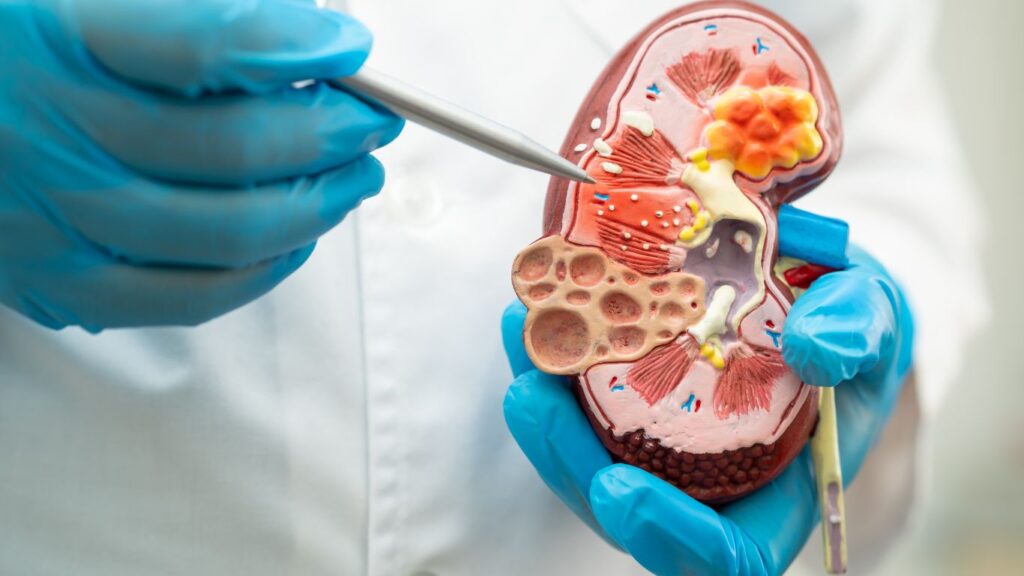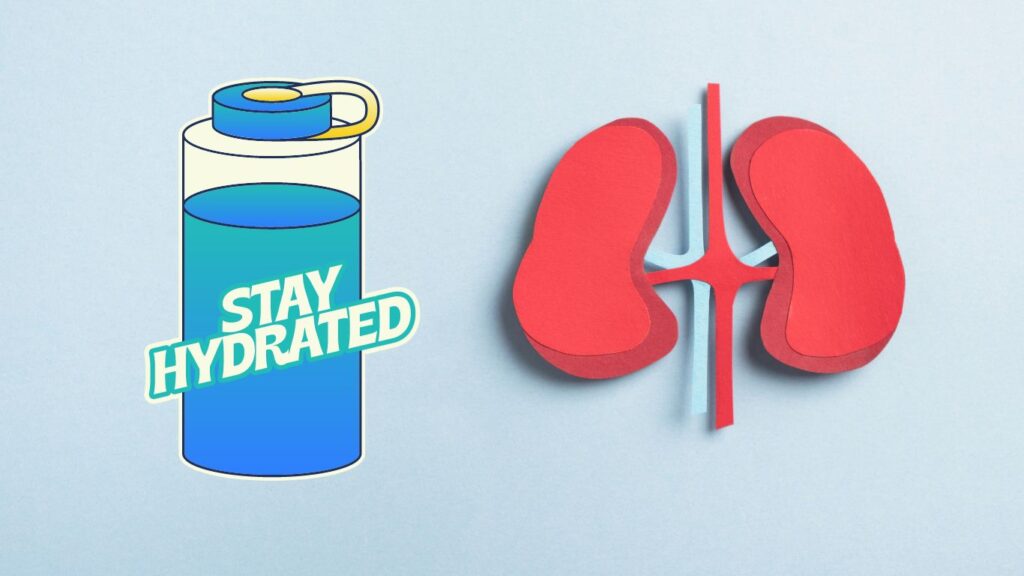Kidney health is crucial for overall well-being, as kidneys play a vital role in filtering waste from blood, regulating blood pressure, and maintaining electrolyte balance. During heatwaves, the body’s need for efficient kidney function becomes even more critical. Heatwaves increase the risk of dehydration, which strains the kidney as they work harder to maintain fluid balance and eliminate toxins. Dehydration can lead to complications such as kidney stones and urinary tract infections, especially in vulnerable populations like the elderly and those with pre-existing kidney conditions. Adequate hydration during heatwaves is essential to support optimal kidney function, ensuring the body can effectively cool itself and maintain homeostasis. Awareness of these connections underscores the importance of staying hydrated and taking proactive measures to protect kidney health during periods of extreme heat.
Heatwaves and Hydration: Their Crucial Impact on Kidney Health
Heatwaves and their Impact
Heatwaves are prolonged periods of excessively hot weather, typically several degrees above normal temperatures for a specific region. These events have been increasing in frequency and intensity due to climate change, driven by global warming trends. Vulnerable populations, such as the elderly, children, and individuals with pre-existing health conditions (e.g., cardiovascular disease, respiratory illnesses), face heightened risks during heatwaves. Their reduced ability to regulate body temperature and increased susceptibility to dehydration and heat-related illnesses make them particularly at risk. Analyzing these factors is crucial for implementing targeted strategies to protect vulnerable groups during extreme heat events, including early warning systems, access to cooling centers, and public health interventions aimed at minimizing heat-related health impacts.
The Role of Kidneys in Heat Regulation
The kidneys play a pivotal role in maintaining fluid balance and regulating body temperature through filtration of blood and adjustment of urine output. They ensure the body retains essential fluids while excreting waste and excess electrolytes. This delicate balance is crucial for overall health and homeostasis.
Heatwaves pose significant challenges to kidney function, primarily through increased risk of dehydration and electrolyte imbalance. Higher temperatures lead to enhanced water loss through sweat, placing additional strain on the kidneys as they work harder to conserve water and maintain proper hydration levels. Electrolyte imbalances, such as low sodium levels due to excessive sweating, can further disrupt kidney function and overall bodily functions. Individuals with compromised kidney function, such as those with chronic kidney disease, are particularly vulnerable to these challenges during heatwaves. Maintaining adequate hydration and electrolyte balance becomes essential to support kidney health and mitigate risks associated with extreme heat events.
Dehydration: A Key Risk Factor

Effects of Dehydration on Kidney Function
Dehydration significantly impacts kidney function by reducing the kidneys’ ability to effectively filter blood and maintain proper electrolyte balance. When the body lacks adequate fluids, blood flow to the kidneys decreases, hindering their ability to remove waste and toxins efficiently. This can lead to a buildup of waste products in the blood and potential damage to kidney tissues over time.
Symptoms and Signs of Dehydration During Heatwaves
During heatwaves, early signs of dehydration include increased thirst, dry mouth, dark-colored urine, and decreased urine output. As dehydration progresses, symptoms may worsen to include dizziness, fatigue, confusion, and in severe cases, rapid heartbeat and fainting.
Importance of Early Recognition and Prevention
Early recognition of dehydration during heatwaves is crucial for preventing kidney damage and other heat-related illnesses. Encouraging adequate fluid intake, especially water, and avoiding excessive heat exposure are vital preventive measures. Prompt intervention with rehydration solutions and seeking medical attention when symptoms of dehydration arise can mitigate risks and support kidney function during periods of extreme heat.
Impact of Heatwaves on Chronic Kidney Disease (CKD)

Increased Risk for CKD Patients During Heatwaves
Patients with Chronic Kidney Disease (CKD) face heightened risks during heatwaves due to impaired kidney function. Their reduced ability to regulate fluid and electrolyte balance makes them more susceptible to dehydration and electrolyte imbalances, which can exacerbate kidney damage.
Challenges in Managing Fluid Intake and Electrolyte Balance
CKD patients must carefully monitor fluid intake to avoid both dehydration and fluid overload, which can strain the kidneys. Maintaining proper electrolyte balance becomes challenging, especially with increased sweat loss during heatwaves.
Strategies for CKD Patients to Cope with Extreme Heat
- Hydration Management: Monitoring fluid intake and adjusting based on individual needs and medical advice.
- Electrolyte Monitoring: Regular monitoring of electrolyte levels and adjusting diet and medications as necessary.
- Cooling Strategies: Using cooling techniques and seeking cool environments to prevent overheating.
- Medical Consultation: Seeking guidance from healthcare providers on managing medications and adjusting treatment plans during periods of extreme heat.
Importance of Hydration in Preventing Kidney Damage

Optimal Fluid Intake Recommendations During Heatwaves
During heatwaves, optimal fluid intake is crucial to maintain hydration and support kidney health. General recommendations suggest increasing fluid intake beyond usual daily requirements, especially for those exposed to high temperatures or engaging in physical activity.
Types of Fluids Recommended (Water vs. Electrolyte Solutions)
Water is the primary fluid recommended for hydration during heatwaves as it effectively replenishes fluids lost through sweating. For individuals at risk of electrolyte imbalances, especially CKD patients or those engaging in prolonged physical activity, electrolyte solutions like sports drinks or oral rehydration solutions can help replace lost salts and minerals.
Monitoring Hydration Status and Urine Output as Indicators of Kidney Health
Monitoring urine output frequency and color is essential. Clear or light-colored urine typically indicates adequate hydration, while dark urine may signal dehydration. CKD patients should also monitor electrolyte levels through blood tests, ensuring they maintain proper balance amidst fluid intake adjustments during heatwaves. Regular communication with healthcare providers helps in adjusting fluid and electrolyte intake based on individual health needs.
Practical Tips for Staying Hydrated During Heatwaves
- Regular Reminders and Setting Alarms: Establishing reminders or alarms throughout the day encourages consistent water intake. This approach helps in forming a habit of drinking fluids regularly.
- Hydrating Foods: Incorporate foods with high water content into your diet, such as watermelon, cucumber, oranges, and strawberries. These fruits not only provide hydration but also essential nutrients.
- Avoid Caffeinated Drinks: Beverages like coffee and tea with caffeine can have a diuretic effect, increasing fluid loss. Limiting these drinks or balancing them with extra water intake is advisable.
- Limit Alcohol Consumption: Alcohol dehydrates the body, leading to increased fluid loss. Moderation and pairing alcoholic drinks with water can mitigate dehydration effects.
- Choose Water-Based Beverages: Consider water as the primary choice of beverage throughout the day. Unsweetened herbal teas and coconut water are also good options for staying hydrated.
- Monitor Urine Color: Checking urine color is a simple way to assess hydration levels. Clear or light-colored urine usually indicates adequate hydration.
Conclusion
understanding the critical relationship between heatwaves and hydration is pivotal for safeguarding kidney health. Proper hydration during periods of extreme heat helps maintain kidney function by supporting optimal blood flow and waste removal. By prioritizing regular water intake, consuming hydrating foods, and avoiding dehydrating beverages like alcohol and caffeine, individuals can mitigate the risks associated with heat-related dehydration. Ultimately, proactive hydration strategies not only protect kidney health but also contribute to overall well-being during times of heightened temperature and climate variability. Stay informed, stay hydrated, and prioritize your health in every season.
Also read: Scorching Heat: How Heatwaves Impact Your Skin Health
